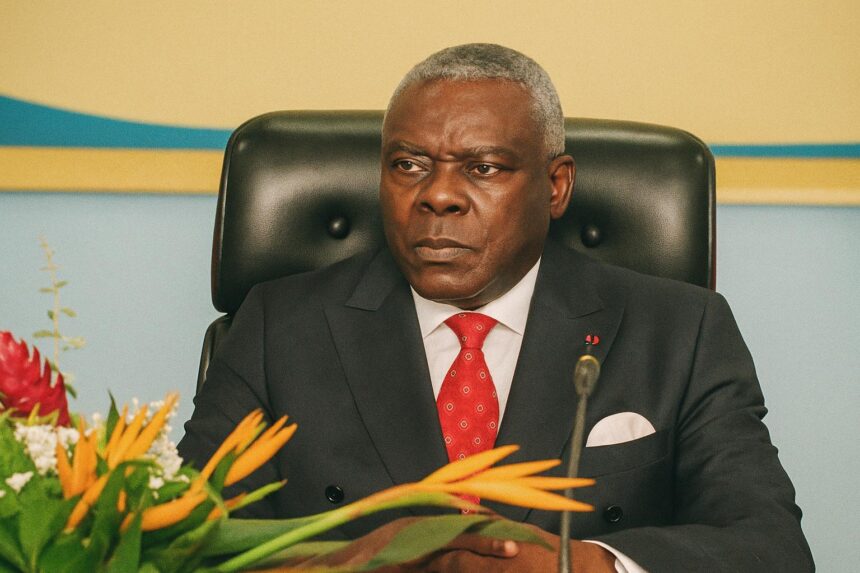Brazzaville Sets the Tempo for Africa’s Digital Turn
On a humid July morning the marble corridors of Brazzaville’s Palais des Congrès echoed with more than rehearsing marimbas. Delegations from twenty-five states, flanked by academics and platform executives, opened laptops beside balafons as the Prime Minister, Anatole Collinet Makosso, launched the 12th Pan-African Music Festival symposium. By framing the week-long debate under the banner “Music and Economic Stakes in Africa’s Digital Age,” Congo signalled its resolve to treat culture as macro-economic architecture rather than ornamental diplomacy. The choice of venue was equally symbolic: the same hall where the national development plan was unveiled now resonated with discussions on royalties, data analytics and blockchain watermarking.
- Brazzaville Sets the Tempo for Africa’s Digital Turn
- Economic Resonance of Creative Industries
- Training, Copyright and the Challenge of Platformization
- UNESCO’s Data-Driven Cultural Diplomacy
- Fespam’s Soft Power in Congo’s Development Vision
- Field Notes from Mayanga to Kintélé
- A Score Still in Composition
Economic Resonance of Creative Industries
Prime Minister Makosso’s keynote intertwined artistic intuition with fiscal calculus. Citing World Bank estimates that creative industries could contribute up to three percent of continental GDP by 2030, he argued that “the drum that thrills our villages should equally stimulate our balance of payments.” His administration, he said, intends to weave tax incentives, regional copyright registries and start-up incubators into Congo’s broader diversification agenda, a roadmap echoed by the 2024 African Union Creative Economy Framework (African Union report, 2024). The subtext was clear: petroleum’s volatility must be counter-balanced by intellectual property denominated in CFA francs.
Training, Copyright and the Challenge of Platformization
Panel discussions quickly homed in on the bottlenecks impeding that vision. Professors from the University of Cape Town mapped a gap between the continent’s surging streaming figures—37 percent year-on-year according to IFPI 2023—and the modest revenue retained locally. Artists such as the Congolese singer Queen Koumb credited the digital wave for instant cross-border exposure yet lamented that “metadata often travels farther than money.” Scholars proposed sovereign collecting societies leveraging AI for royalty tracking, while Spotify’s representative urged harmonised tariff structures to lure more venture capital. No single formula emerged, but participants converged on the need for state-backed academies to upgrade skills in sound engineering, intellectual property law and immersive reality staging.
UNESCO’s Data-Driven Cultural Diplomacy
Fatoumata Barry Marega, UNESCO’s resident coordinator in Congo, reminded delegates that evidence rather than aspiration underpins robust policy. Citing the agency’s Culture | 2030 Indicators pilot (UNESCO, 2023), she pledged technical assistance for building statistical dashboards that quantify both economic spill-overs and social cohesion derived from music. “Decision-makers require disaggregated data, not folklore,” she observed, positioning UNESCO as an analytic rather than merely ceremonial partner. Her message resonated with diplomats from the European Union and the Gulf Cooperation Council, eager to anchor soft-power grants to measurable outcomes.
Fespam’s Soft Power in Congo’s Development Vision
Beyond spreadsheets, Fespam functions as an instrument of foreign policy. Since its inception in 1996 it has enabled Brazzaville to cultivate what scholars term “reputational bandwidth,” portraying Congo as an arbiter of pan-African dialogue despite economic headwinds (Jeune Afrique analysis, 2024). This year’s convergence of Silicon Valley coders, West African griots and Caribbean festival curators amplified that bandwidth. The government’s subtle choreography—projecting stability, hospitality and technological curiosity—did not escape visiting embassies weighing cultural accords. As one Central African diplomat confided privately, “Sassou Nguesso’s administration is scoring decibels rather than declarations.”
Field Notes from Mayanga to Kintélé
While policies were debated in conference rooms, music thundered across three concert sites. In Mayanga, drones filmed a fusion orchestra plugging n’goma drums into synth modulators, footage destined for a state-run streaming platform due to launch next quarter. At Kintélé’s social-housing esplanade, start-ups piloted contactless ticketing linked to mobile-money wallets, a reminder that financial inclusion can ride on cultural consumption. Exhibitions of lutist craftsmanship inside the Palais des Congrès attracted investors scouting ethical luxury markets. These vignettes illustrated how the symposium’s abstractions translate into micro-economic experiments, aligning with Congo’s ambition to double cultural exports by 2028, according to the Ministry of Trade.
A Score Still in Composition
By the time closing gongs reverberate on 25 July, delegates will leave Brazzaville clutching policy drafts more than souvenirs. The path from manifesto to monetisation remains strewn with bandwidth costs, uneven regulation and the perennial question of who pays the artist after the encore. Yet the very fact that these issues were debated in a forum chaired by the Prime Minister suggests that, in Congo, culture has advanced from cabinet anecdote to cabinet agenda. Whether the kora’s gentle timbre can harmonise with the clicks of a global marketplace is a composition still unfolding, but Fespam’s 2025 movement has laid down an unmistakable motif.



















